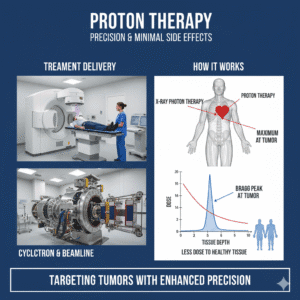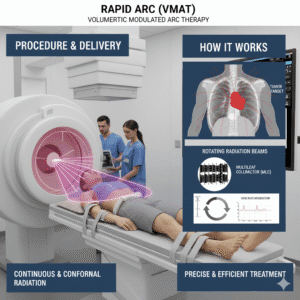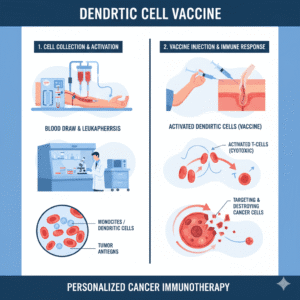
High Intensity Focussed Ultrasound
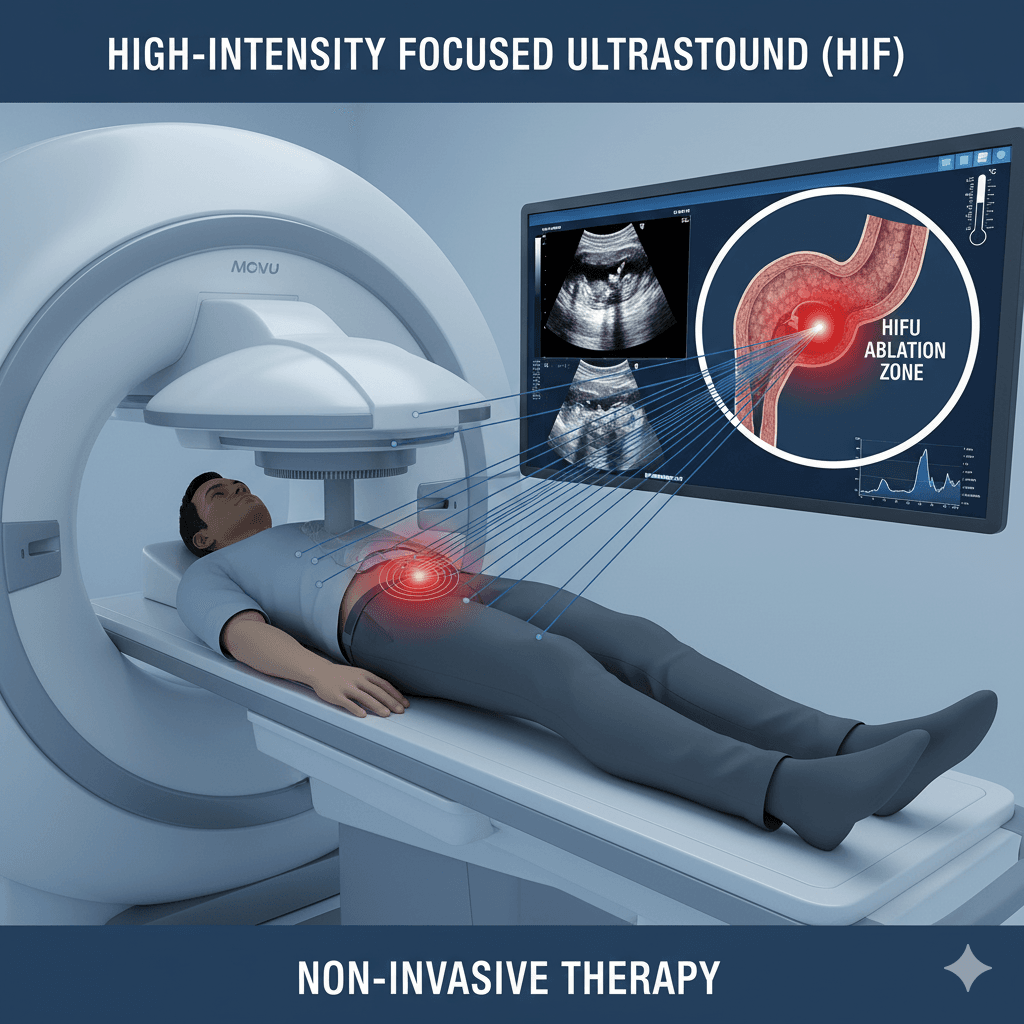
High-Intensity Focused Ultrasound (HIFU) in Cancer Treatment
Q1: What is High-Intensity Focused Ultrasound (HIFU)?
A: High-Intensity Focused Ultrasound (HIFU) is a non-invasive cancer treatment that uses focused ultrasound waves to generate heat and destroy cancer cells. The ultrasound waves are precisely directed at the tumor, heating the tissue to a temperature that kills the cancer cells without harming surrounding healthy tissue.
Q2: How does HIFU work in treating cancer?
A: HIFU works by using ultrasound waves that are focused on a specific area of the body, where the tumor is located. The high-energy waves cause the targeted tissue to vibrate and heat up, effectively “cooking” the cancer cells. This focused heating destroys the cancer cells while sparing nearby healthy tissues. The procedure is guided by imaging techniques such as MRI or ultrasound to ensure accuracy.
Q3: What types of cancer can be treated with HIFU?
A: HIFU is primarily used to treat certain types of cancer, including:
- Prostate cancer: HIFU is most commonly used for localized prostate cancer, either as a primary treatment or for recurrent cancer after other treatments.
- Kidney cancer: HIFU can be used to treat small, localized kidney tumors.
- Liver cancer: For patients with small liver tumors, HIFU may be an option, especially if surgery is not possible.
- Pancreatic cancer: HIFU can be used for palliative treatment to relieve pain and reduce tumor size.
- Bone metastases: HIFU may also be used to relieve pain from cancer that has spread to the bones.
Q4: What are the benefits of HIFU?
A: The benefits of HIFU include:
- Non-invasive: HIFU is a non-surgical procedure, meaning there are no incisions, and recovery is usually quicker than with traditional surgery.
- Targeted treatment: HIFU precisely targets the tumor, minimizing damage to surrounding healthy tissue.
- Reduced side effects: Because it’s non-invasive and focused, HIFU often has fewer side effects compared to surgery, radiation, or chemotherapy.
- Outpatient procedure: Many HIFU treatments can be done on an outpatient basis, allowing patients to go home the same day.
Q5: What should I expect during a HIFU procedure?
A: During a HIFU procedure:
- Preparation: You will lie on a treatment table, and depending on the location of the tumor, you may be positioned accordingly. Imaging techniques like MRI or ultrasound will be used to locate the tumor precisely.
- Treatment: The HIFU device is then used to focus ultrasound waves on the tumor. You may feel warmth or mild discomfort during the procedure, but it is usually well-tolerated.
- Duration: The procedure typically lasts between 1 to 4 hours, depending on the size and location of the tumor.
- Recovery: Since HIFU is non-invasive, recovery time is usually short. Most patients can resume normal activities within a few days.
Q6: Are there any risks or side effects associated with HIFU?
A: While HIFU is generally safe, there are some potential risks and side effects, including:
- Pain or discomfort: Some patients may experience pain or discomfort during or after the procedure, which can usually be managed with medication.
- Skin burns: Rarely, the skin over the treatment area may be burned or blistered.
- Injury to surrounding tissues: Although HIFU is precise, there is a small risk of damage to nearby organs or tissues.
- Infection: As with any medical procedure, there is a minor risk of infection.
Your healthcare team will discuss these risks with you and monitor you closely during and after the procedure.
Q7: How do I know if HIFU is the right treatment for me?
A: Whether HIFU is suitable for you depends on several factors, including the type, size, and location of your tumor, as well as your overall health and treatment goals. HIFU is often considered for patients who prefer a non-invasive treatment option or for those who cannot undergo surgery. Your oncologist will evaluate your specific situation and discuss whether HIFU is a good option for you.
Q8: What happens after a HIFU procedure?
A: After HIFU, you will be monitored for a short time before being discharged. Most patients experience minimal discomfort and can return to normal activities within a few days. Follow-up appointments will be scheduled to monitor the effectiveness of the treatment and to check for any potential side effects. Imaging tests may be done to assess the tumor’s response to the treatment.
If you have more questions about High-Intensity Focused Ultrasound (HIFU) or are considering it as a treatment option, talk to your healthcare provider. They can provide detailed information and help you understand how HIFU might fit into your overall cancer treatment plan.
Related Post


CyberKnife
August 6, 2024

Immunotherapy
August 7, 2024
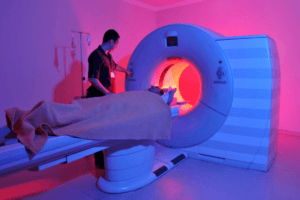
MRI Linac
August 7, 2024

Gamma Knife
August 7, 2024
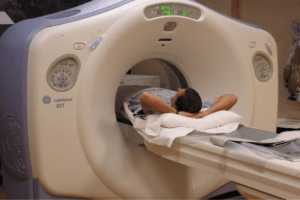
Cancer Screening
August 22, 2024
Gallery
Click below to book a clinic appointment
Ask More Questions Send Query On Email


